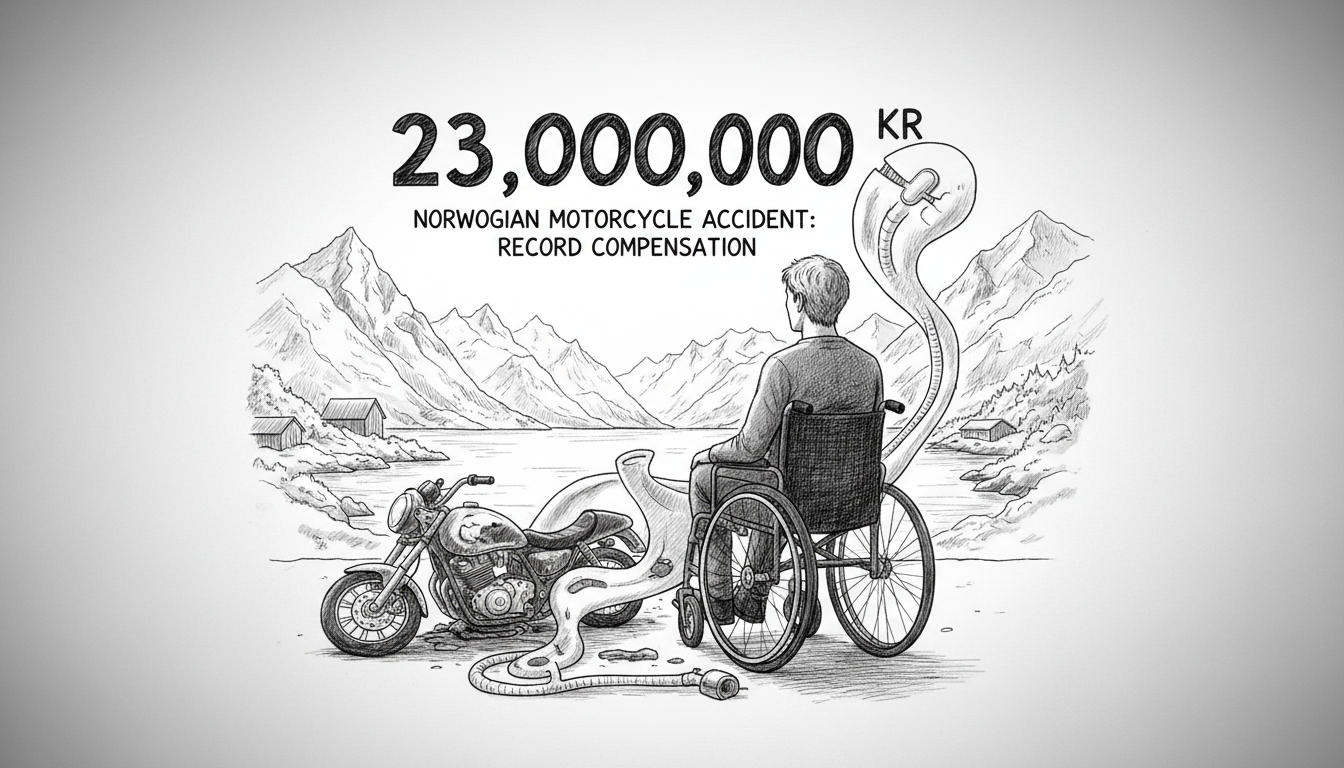A Norwegian man in his twenties has received 23 million kroner in compensation from Fremtind Insurance following a severe traffic accident. The settlement represents one of the largest personal injury payouts in recent Norwegian legal history. The incident occurred when the man's light motorcycle overturned, sending him into the opposite lane where he was struck by an oncoming vehicle.
The victim sustained life-altering injuries that require permanent care. He will need assistance with daily activities for the rest of his life. The compensation package covers future medical expenses, lost income potential, and compensation for reduced quality of life.
Norwegian insurance claims follow strict national guidelines for personal injury compensation. The Norwegian System of Personal Injury Compensation establishes clear frameworks for calculating damages. This case demonstrates how the system handles catastrophic injuries requiring lifelong care.
Legal experts note that compensation levels in Norway reflect the country's high standard of living and comprehensive social safety net. The amount accounts for both direct costs and intangible losses like pain and suffering. Such settlements aim to provide financial security while acknowledging the permanent impact on victims' lives.
Norway's traffic safety record remains among the best globally, but serious accidents still occur. The country has invested heavily in road infrastructure and vehicle safety standards. This case highlights the importance of Norway's compulsory liability insurance system for all motor vehicles.
The compensation process involved detailed medical assessments and economic calculations. Insurance companies work with healthcare professionals to determine future care needs. They also consult labor market experts to project lost earning capacity over a victim's expected working life.
This settlement shows how Norwegian law values human life and well-being. The system prioritizes restoring dignity and independence to accident victims where possible. For cases involving permanent disability, the focus shifts to ensuring quality care and financial stability.
Road safety remains a key priority for Norwegian transportation authorities. The country continues to implement measures to reduce serious accidents. These include improved road design, stricter enforcement, and public awareness campaigns about motorcycle safety.
The case underscores the vital role of insurance in Norway's social contract. The system provides protection for both accident victims and other road users. It ensures that those suffering life-changing injuries receive proper support without burdening the public healthcare system exclusively.

